London's new tram-like buses come into service
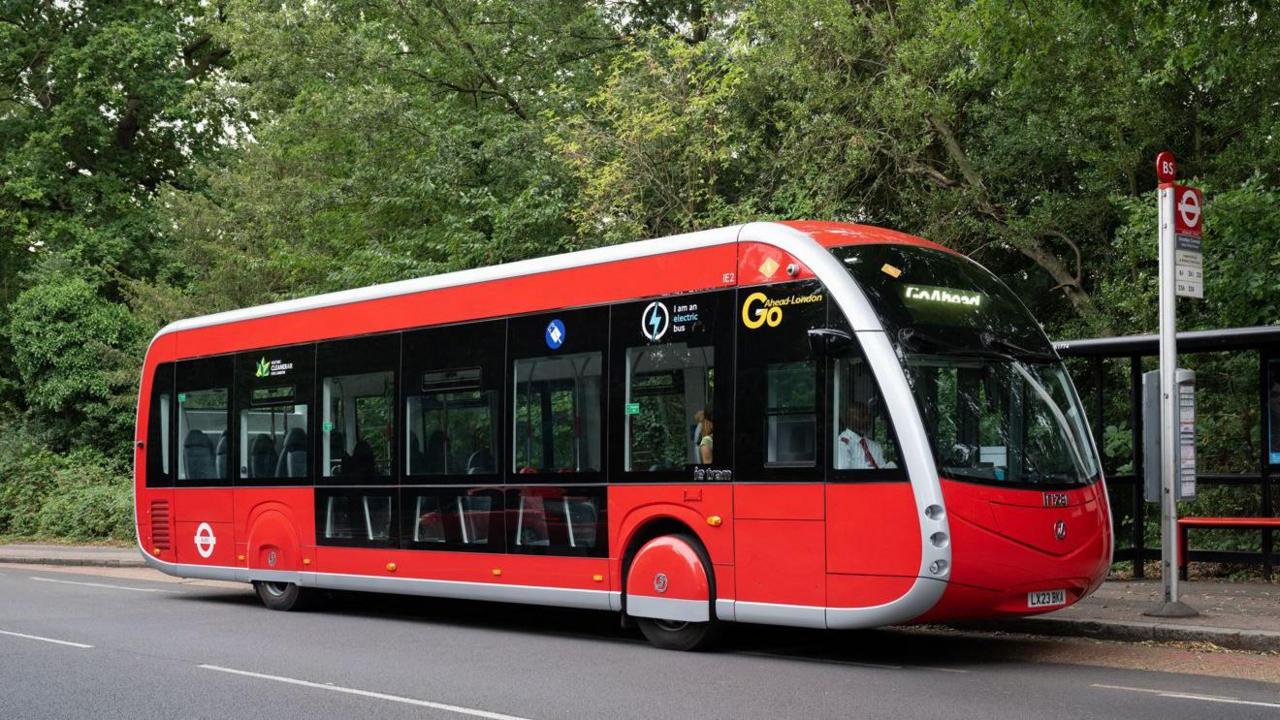
The new single-decker buses have a slanted windscreen that curves under at the bonnet
- Published
New "zero-emission" electric buses will begin running on London's 358 route from Wednesday, Transport for London (TfL) has revealed.
The vehicles, which look similar to trams but run on roads, are powered by pantograph technology which uses an arm-like structure attached to the bus roof.
This enables them to be charged at each end of the 15 mile (24km) route between Crystal Palace and Orpington in as little as six minutes, TfL explained, which means drivers do not need to return them to garages to recharge.
The transport authority said the changes would bring financial benefits because fewer buses are required on the route, so money could be reinvested into other parts of the network.
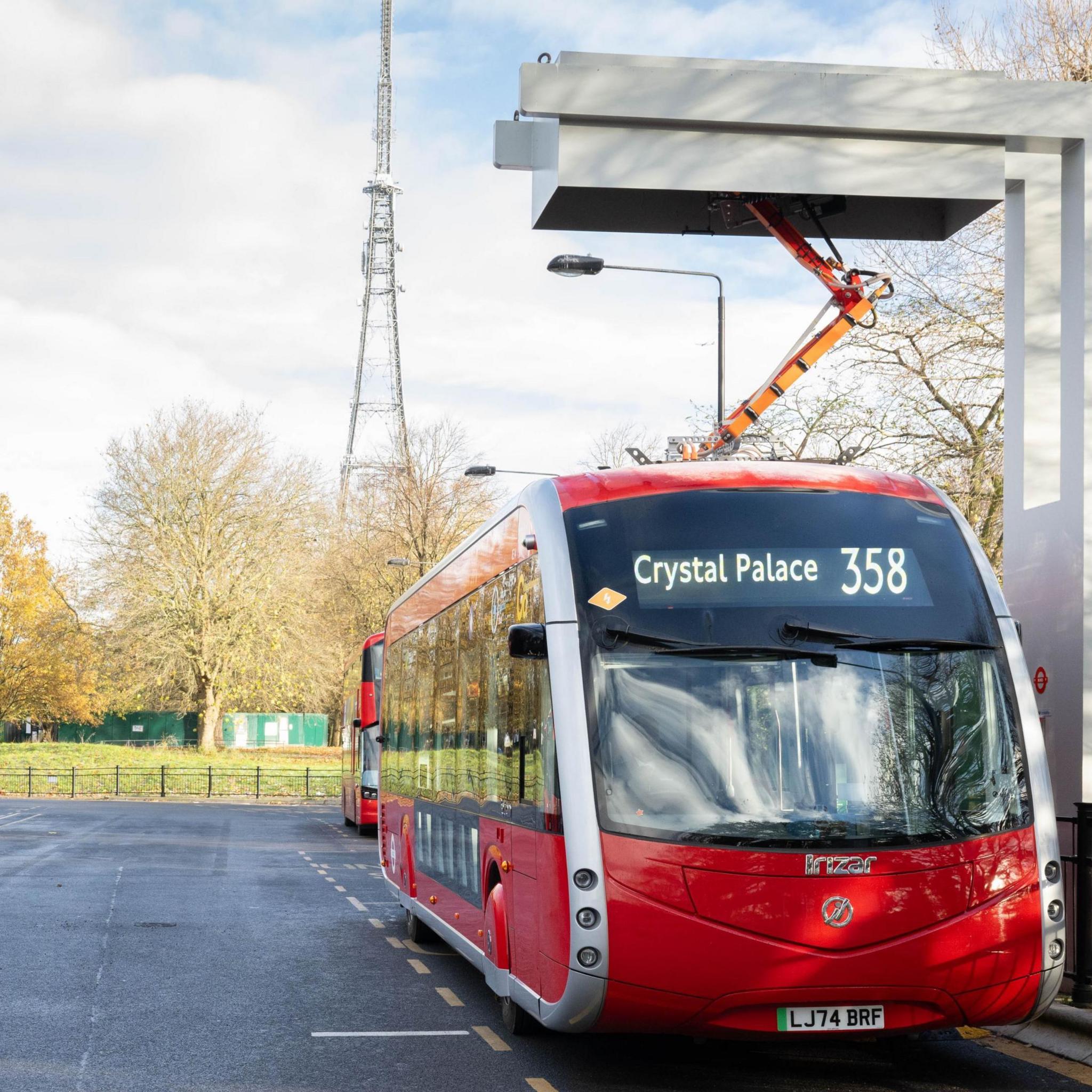
The buses are charged at the end of each journey with an arm-like structure attached to the bus roof
The new buses are said to include enhanced safety features, such as speed-limiting technology, audible warnings to alert pedestrians and other road users, and improved direct and indirect vision for drivers through the use of camera monitoring instead of mirrors.
TfL said the vehicles had been designed with "a safer front-end design" as part of efforts to help achieve "the mayor’s vision zero goal, external of eliminating all deaths and serious injuries on London’s roads".
The interior is designed to reduce customer injuries by using an improved seat design and slip protection flooring and also features USB charging ports and palm-operated assistance buttons, the transport body said.
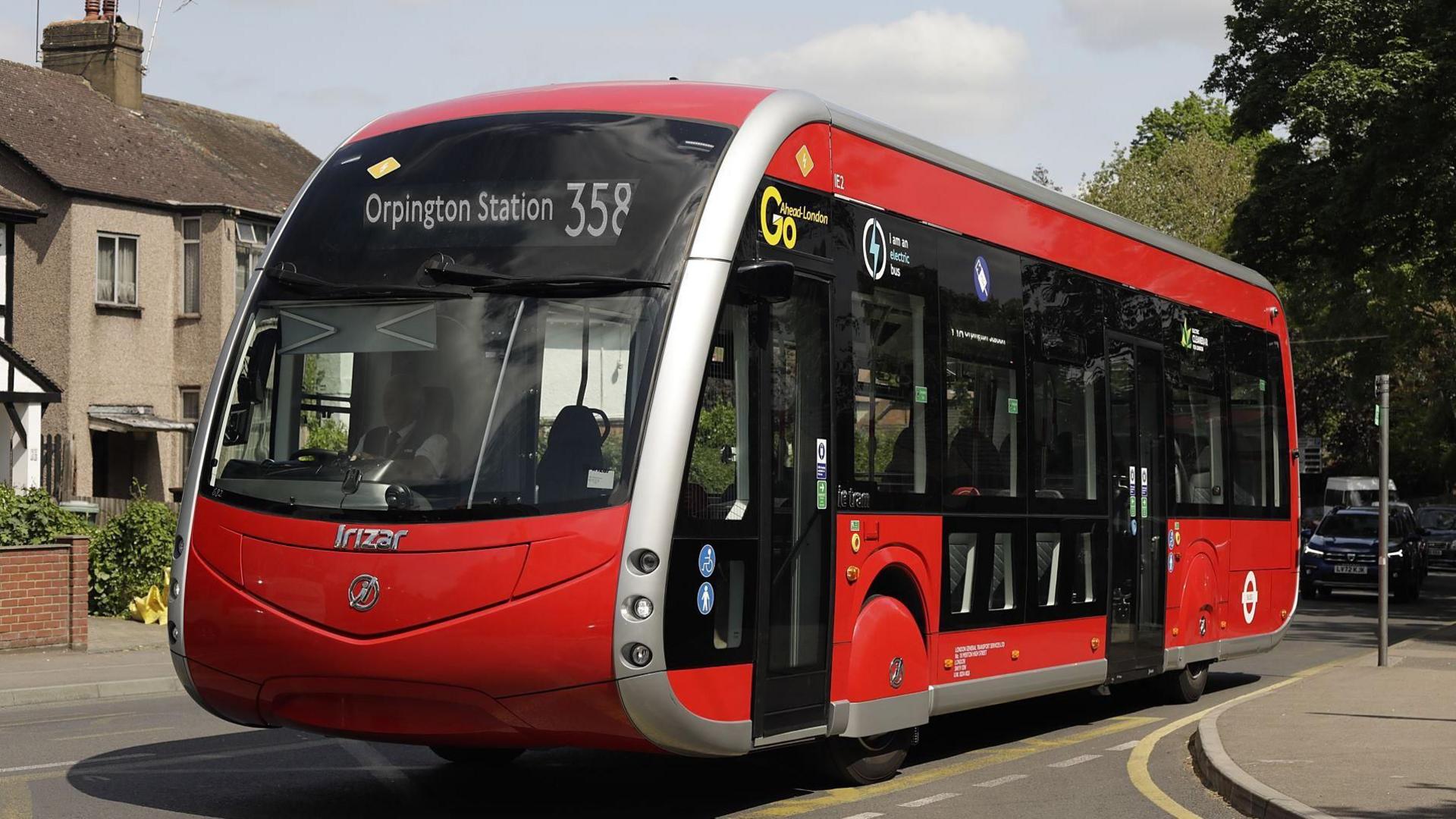
The project is the result of a collaboration between Go-Ahead London, TfL, and Spanish supplier Iriza
Changes to Orpington bus station have been made to support the new layout and charging infrastructure for the buses:
Stop F will become the stop for route 51
Stop E will remain the stop for seven routes – 358, 684, R1, R4, R5, R8, R10
Stop D will become the departure stop for three services taken from Stop F and will operate alongside services that already depart from here – B14, R1, R3, R4, R6, R9 (and the non-TfL route 477)
Pantograph technology was first introduced to London in 2022 at Bexleyheath garage to test longer-range technology across the network, TfL said.
This latest project is the result of a collaboration between Go-Ahead London, TfL, and Spanish supplier Irizar.
'Cleaner, greener services'
Tom Joyner, managing director of Go-Ahead London which operates the buses, said: "I am incredibly proud of the strides we've made this year in our journey toward a zero-emission future.
"This includes the exciting launch of the 358 route and the expansion of our pantograph technology, both strong testaments to our commitment to cleaner air and healthier communities."
Lorna Murphy, director of buses at TfL, said: "Installing new rapid-charging pantograph infrastructure on one of London’s longest bus routes is an innovative step forward, helping us to run cleaner, greener services that get Londoners where they need to be."
London's deputy mayor for the environment Mete Coban said electrifying bus fleets is "key to the mayor’s aims of cleaning up London’s toxic air and making London a net-zero carbon city by 2030".
Listen to the best of BBC Radio London on Sounds and follow BBC London on Facebook, external, X, external and Instagram, external. Send your story ideas to hello.bbclondon@bbc.co.uk, external
Similar stories
- Published9 July 2024
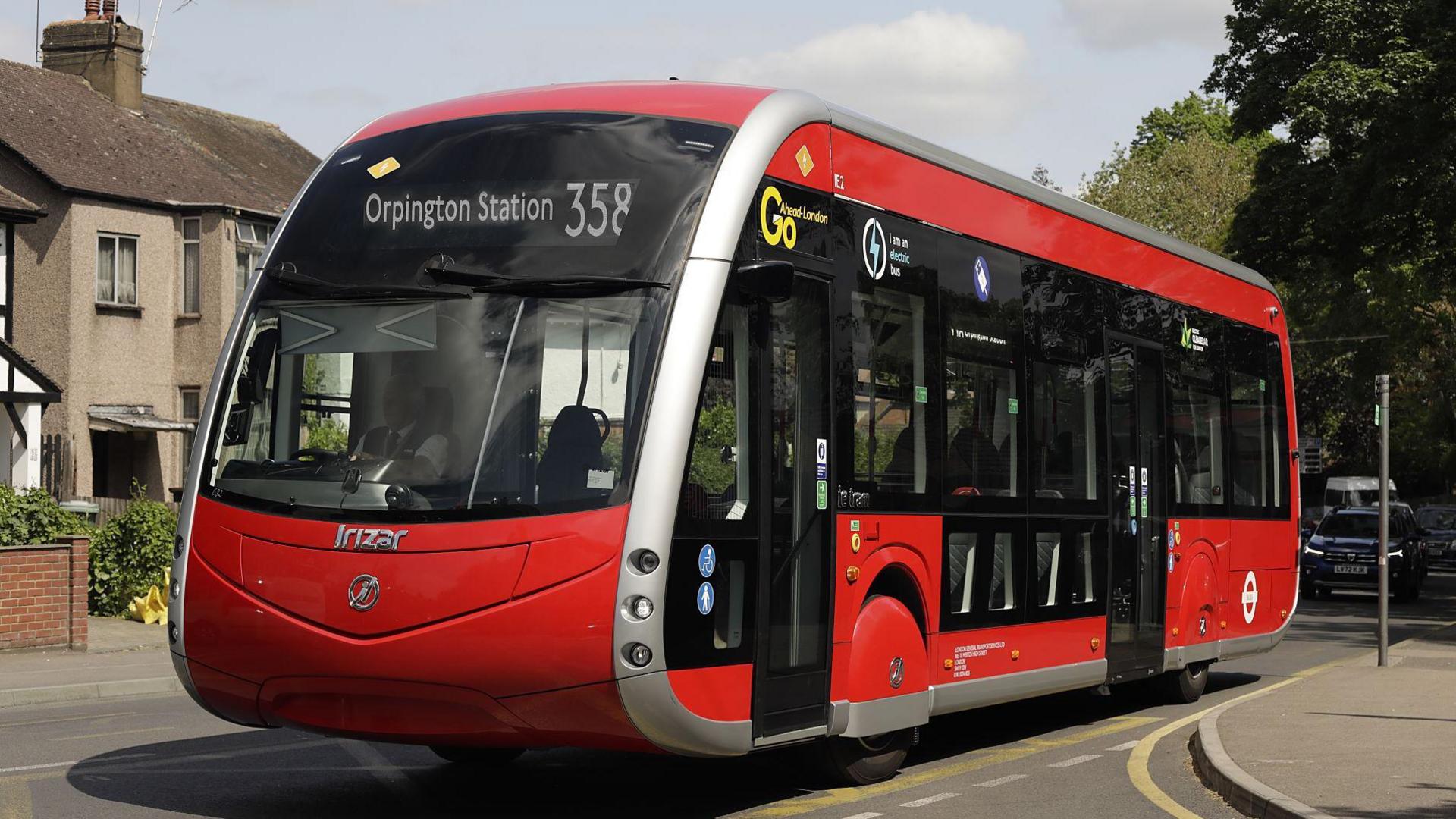
- Published6 November 2024

- Published16 November 2024
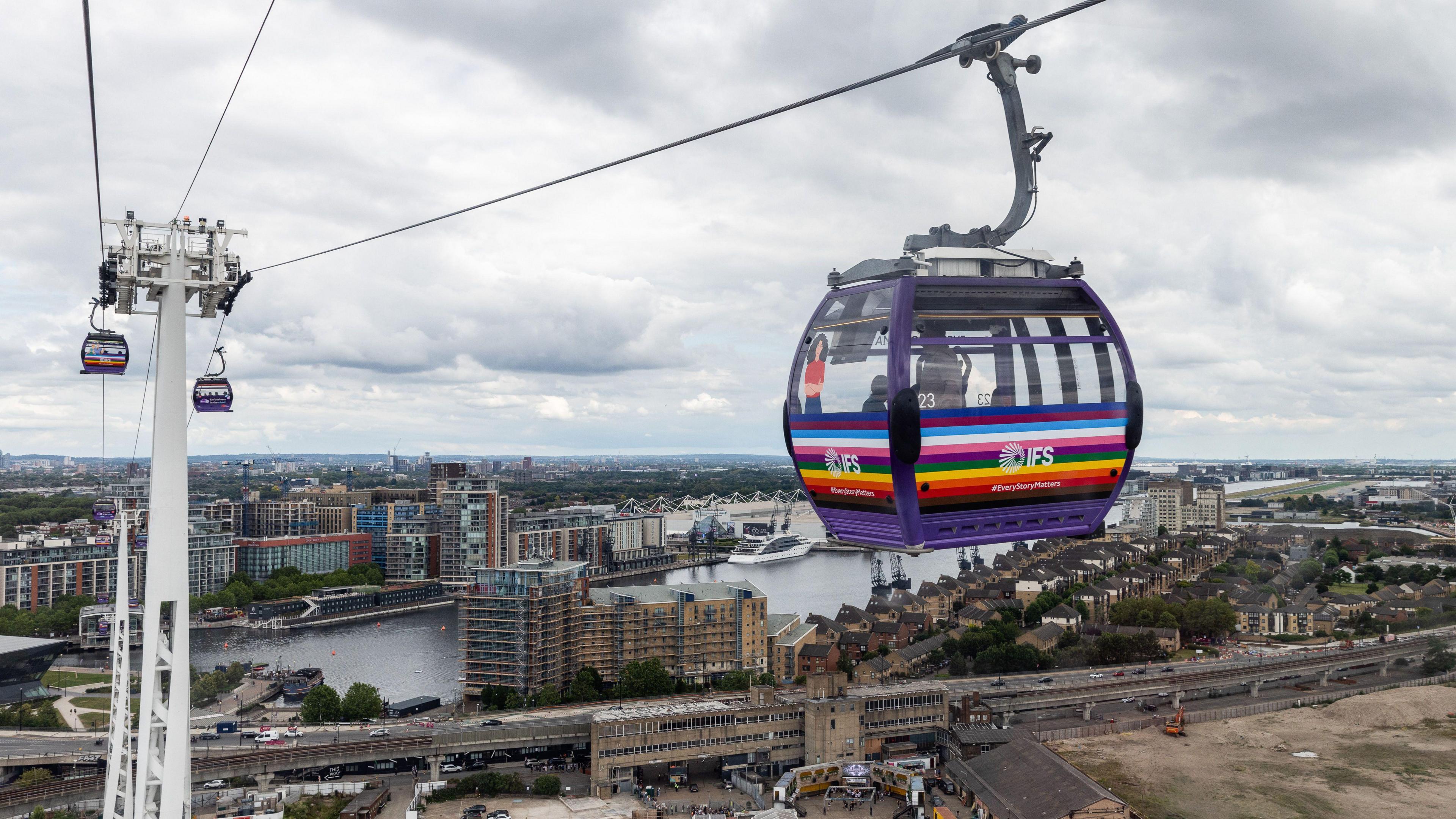
- Published3 November 2024
